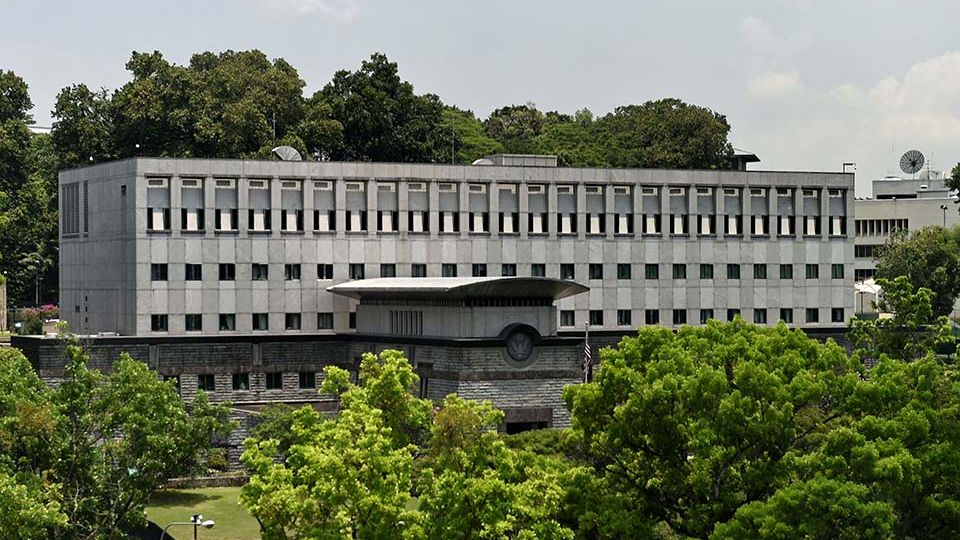May 22, 2025
SINGAPORE – The Singapore Government says it rejects attempts by foreign embassies here to incite domestic reactions to international issues involving third countries, adding that complex issues are best resolved through appropriate channels for effective diplomacy.
The May 21 statement from the Ministry of Foreign Affairs came after the US and Chinese embassies here engaged in an exchange of videos and words on social media on the South China Sea.
On May 20, the United States Embassy in Singapore posted a video that compared territorial disputes in the South China Sea to those occurring in the common areas of HDB blocks in Singapore on its social media accounts.
The one minute 30 seconds-clip opens with exterior shots of HDB blocks before zooming in on pictures of belongings cluttering their walkways or common areas.
“So imagine coming home one day and finding this,” says a voiceover in Singaporean-accented English.
“A neighbour has decided that the space in front of your door is theirs. They block your entrance by putting their things on your doorstep. Does this remind you of anything else?”
The video then presents news clippings about the Philippines and Vietnam protesting against China’s actions in the South China Sea.
“This happens right outside Singapore’s doorstep, too, in the South China Sea, where one neighbour thinks he owns basically everything.”
A day later, on the night of May 21, the Chinese Embassy in Singapore posted on its Facebook page a video of its own in response to the US embassy video.
In a post, it charged that the US Embassy in Singapore “deliberately distorts the ins and outs of the South China Sea issue in a video posted on its Facebook page on May 20”.
It added that the US was “the least qualified to even talk about international law”.
“By putting its own priorities over international rules, habitually withdrawing from international conventions and organisations, bullying and coercing other countries on issues like tariffs, and publicly declaring seizing the control of the Panama Canal and Greenland, the US wants to reimpose the law of the jungle where might makes right upon the rest of the world.”
It added: “We urge the US to stop being a hypocritical preacher and provocateur, and refrain from stirring up more troubles for peace and stability in the region.”
One of the world’s busiest waterways, the South China Sea is the site of overlapping claims by China, Taiwan and four Asean states – Brunei, Malaysia, the Philippines and Vietnam.
A United Nations tribunal had in 2016 ruled in favour of the Philippines in a case against China’s broad claims in the South China Sea, saying China’s “nine-dash line” had no legal basis. China rejects this.
In its video, the US embassy compared the situation to an HDB resident not complying when asked by the Town Council to remove his belongings that are cluttering the common areas.
“This neighbour’s behaviour is egregious, and what’s worse, they aren’t following the rules that keep things safe and fair for everyone,” says the voiceover.
When contacted by The Straits Times, a spokesperson for the US Embassy in Singapore said that it presents US government policy and views on issues that affect the security and prosperity of the US and the entire region, with maritime disputes in the South China Sea being one set of such issues.
“Drawing an analogy to the local Singapore context, the video explains the US understanding of the dispute by referencing a phenomenon to which anyone around the world can relate, i.e. bad neighbourly behavior running afoul of relevant law,” added the spokesperson.
The Chinese embassy’s video shows a June 2024 China Central Television interview with Mr Cui Tiankai, China’s former ambassador to the US, at the IISS Shangri-La Dialogue in Singapore, in which he outlines China’s position on the South China Sea and accused the US of being responsible for the escalation of tensions in the waterway.
“It’s very unfortunate that external forces are playing such a destructive role,” he said.

